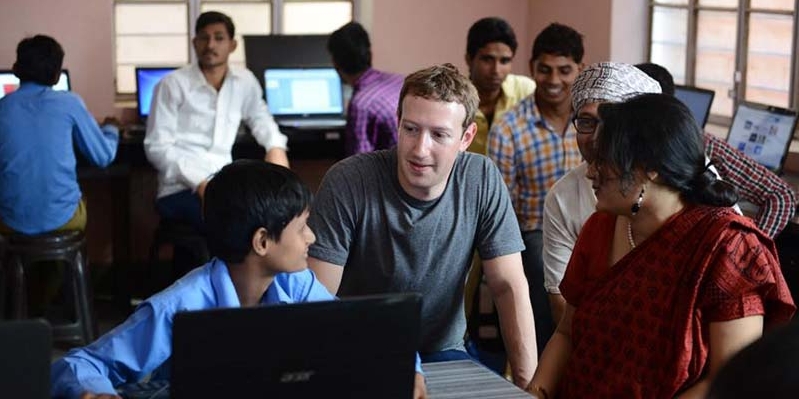
Facebook founder dismissed accusations that Free Basics service is anti-competitive in India's internet market. Mark Zuckerberg defended his free internet project in India after critics say the new scheme promotes "walled garden" controlled by Facebook.
Zuckerberg stressed that internet access equates to education, poverty alleviation, and health provision. He also reiterated that the project could help one billion people in India who are not currently online.
Facebook's Free Basics project allows people to use services like education, health care, and employment listings through apps specially designed for this platform on their phones without a data charge. However, users are not allowed to access many services such as YouTube, Gmail, Google or Twitter.
Even though Free Basics allows people to access some Web services without fees, the project has been criticized by some for the violation of net neutrality principle, which suggests that all internet traffic should be equally treated.
Zuckerberg went on to illustrate his meeting with local farmers Ganesh and Bharati Nimbalkar in Maharashtra in western India. He said that Free Basics had given these farmers an online access to weather's forecast and commodity prices. The project helped the farmers to prepare their crops and sell their products.
On other hand, critics' said that Facebook would likely select few services in favor of the social media site.
"Free Basics and its peer telecom operator models are not open, plural or diverse, and can be harmful for India's democracy," Nikhil Pahwa, net neutrality campaigner, said in a published statement. "It is a form of vertical integration that is anti-competitive and is inimical for India's fledgling startup ecosystem. It gives Reliance Communication and Facebook the power to pick winners and losers online."
Telecom Regulatory Authority of India (TRAI) has already asked Reliance Communications, Zuckerberg's Free Basics collaborator in India, to suspend the project temporarily.
The telecommunications company also needs to issue comments by December 30 on a consultation paper on allowing service providers to charge different pricing for data usage on applications, websites, and other platforms.
In response to the critics, Mark Zuckerberg wrote an op-ed in Times of India, "This isn't about Facebook's commercial interests - there aren't even any ads in the version of Facebook in Free Basics." He also added that if people lose access to free internet services, they would simply lose access to the opportunities offered by the World Wide Web.
Estimates show that India will have 500 million internet users by 2017.
In April, Zuckerberg has also spoken out against his critics' accusation that providing free services "goes against the spirit of net neutrality."
"I strongly disagree with this," he said on his Facebook page. "We fully support net neutrality. We want to keep the internet open. Net neutrality ensures network operators don't discriminate by limiting access to services you want to use. It's an essential part of the open internet, and we are fully committed to it.
"But net neutrality is not in conflict with working to get more people connected. These two principles - universal connectivity and net neutrality - can and must coexist."







